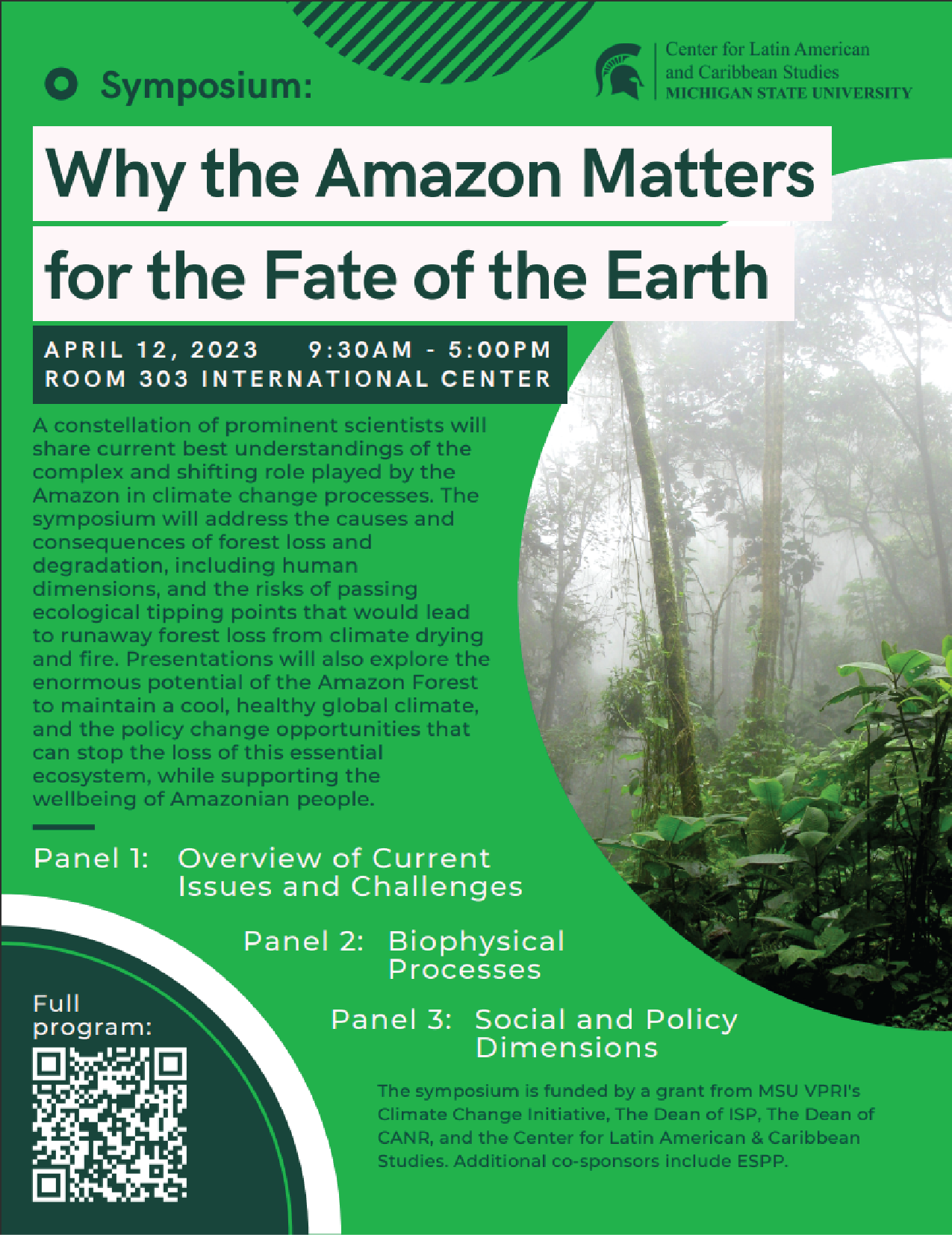Symposium: Why the Amazon Matters for the Fate of the Earth
A constellation of prominent scientists known for their expertise on the Amazon and climate change will present current best understandings of the complex and shifting role played by the Amazon in climate change processes. They will address the causes and consequences of forest loss and degradation, including human dimensions, and the risks of passing ecological tipping points that would lead to runaway forest loss from climate drying and fire. These experts will also explore the enormous potential of the Amazon Forest to maintain a cool, healthy global climate, and the policy change opportunities that can stop the loss of this essential ecosystem, while supporting the wellbeing of Amazonian people.
Registration is not required for this event. For more information, including the list of speakers, please visit the Amazon Symposium webpage.

The first day of this symposium, April 12, will feature presentations and discussions by experts in the field. Following the public symposium, event participants will work collaboratively for two days, April 13-14, to respond to the following urgent challenge:
While Amazon deforestation and degradation expanded markedly in recent years, robust and synthetic research—drawing on mature social, ecological, earth science and remote sensing—has placed a strong spotlight on the dangerous causes and consequences of this destruction. The science has highlighted again and again the risk of a runaway forest loss cycle as agricultural conversion expands, driven by reinforcement of drought and fire by forest loss. The evidence is in, and the need is urgent to reverse these trends in order to protect the Amazon Forest, fight climate change, and protect human health and prosperity at multiple scales. With the opening of new opportunities for policy change, our scientific community is at a key juncture; we are faced with the challenge to produce scholarship with the highest policy impact. In this light, we challenge the participants of this symposium to work as a group to:
- Identify the most impactful policy-relevant questions that have not yet been adequately answered, and
- Describe the programs and approaches needed to reach these answers as quickly as possible.
The groups' collective responses will inform a synthesis paper and research proposals to implement these lines of research.
The symposium and workshops are funded by a grant from the Office of Research and Innovation's Climate Change Initiative, the Dean of International Studies and Programs, the Dean of the College of Agriculture and Natural Resources, and the Center for Latin American and Caribbean Studies. Environmental Science & Policy Program is also a co-sponsor.
